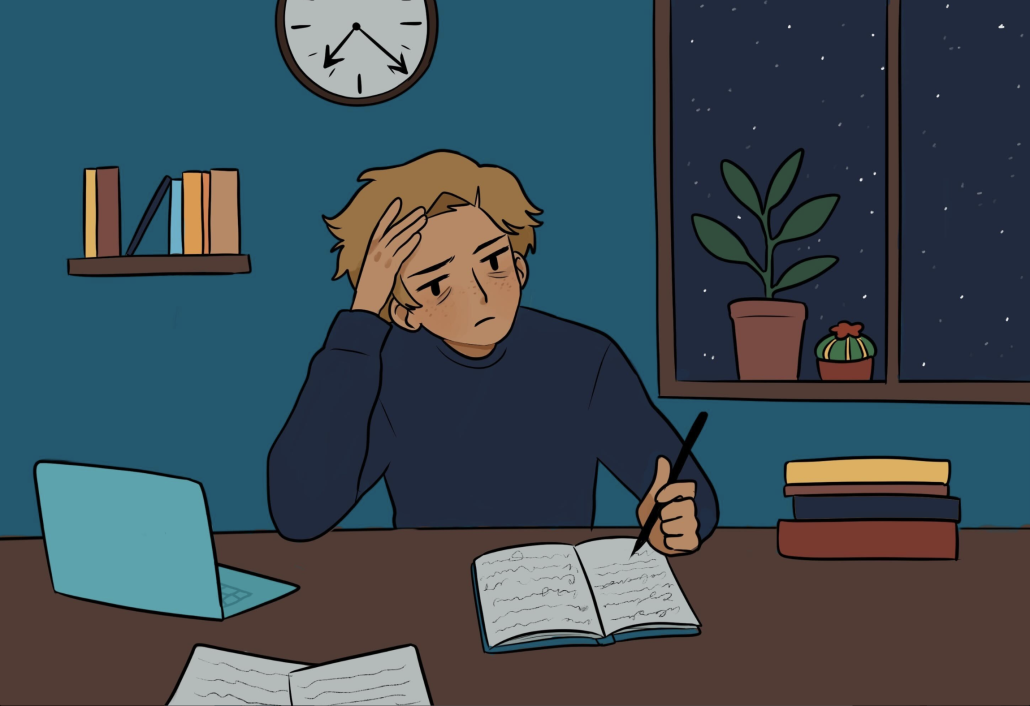General Education is genuinely disappointing

Upon my admission to USC as a sophomore transfer last year, one of the last things I expected from my education was how much time I would spend painstakingly studying material that does not contribute to my major.
I do not wish to claim that USC’s General Education requirements are irrelevant or unnecessary — quite the contrary actually. The educational potential that GEs possess are vital, especially towards fostering an education in which multiple disciplines can be connected. It creates a holistic way of learning, one akin to that of liberal arts schools.
After all, according to USC’s Schedule of Classes website, “The University’s general education program is structured to provide a coherent, integrated introduction to the breadth of knowledge you will need to consider yourself (and to be considered by other people) a generally well-educated person.”
However, my qualms reside in USC’s execution of how we receive our GE material and how much emphasis is placed on the workload.
Now, I cannot speak from experience in regards to the GE-A (The Arts) and GE-B (Humanistic Inquiry) courses, as I already either completed them at my previous institution, or they were fulfilled within my Bachelor of Arts degree in Art requirements, but I can and will complain about the rigor of the GE-D (Life Sciences) and GE-E (Physical Sciences) courses that I have had to take here.
The format of these classes is already an issue: just four exams and labs throughout the semester with as much lecture material crammed into each class section as humanly possible in between. The professor simply reads from slides, occasionally adding additional information, with the expectation that anything mentioned in class — no matter how minimal — has the potential to appear on one of the exams.
This results in desperately taking as many notes during lecture and attempting to make sense of the incoherent words afterwards when it comes time for an exam. The days leading up to said exams all look the same: me in front of my laptop, reading through my 100+ pages of notes — and no, this is not a fabricated exaggeration — trying to memorize as much information as possible. Then, the day of the exam comes. My head is fogged with facts on the specifics on DNA, reproduction, chemical bonds and more, which I always come to find is extremely irrelevant on the exam in front of me. No, instead, the hyper specific details that were mentioned for no longer than a minute in class are staring right back at me. I take the exam, receive a mediocre grade, attend class the next day and vow to write literally everything that leaves the professor’s lips and simply repeat the process over.
This format sounds strikingly similar to how typical high school classes are run: privileging memorization and the ability to simply regurgitate information as opposed to building on ways of thinking as, I believe, a holistic education that was vowed to us, should. The problem with this method also lies in the fact that oftentimes, information is instantaneously forgotten as soon as the exam is completed because there is no application or discussion of the material to follow. Besides, we are on the way to the next topic instantaneously, leaving everything to the past.
So, not only are these GEs extremely time-consuming, but they also have virtually no benefit. What I have been experiencing these last two semesters is feverishly reviewing lecture material — the sheer volume of it making me feel as though my major is chemistry, not art — instead of paying attention to my other classes. As an art student myself (and I am certain is the case for every major), time is extremely important. I find myself rewatching lectures and rereading slides everyday, further procrastinating larger art projects and assignments in favor of attempting to tap into my nonexistent left-brainedness in order to pass my GE.
While I have been able to keep my head above the water so to speak by passing these required classes, it is absolutely at the detriment to my focus in other more important courses pertaining to the career and life I wish to have after USC.
Because of the nature of these classes — in the way that they add unnecessary stress due to their formatting — GEs should be pass-no-pass in order for students to allot enough time to other courses and endeavors.
I understand that this sends the message that GEs are of lesser importance than other classes (they are) but until the structure of these classes are altered in a way that I think I can benefit from their educational content, I will remain extremely displeased with the fact that I have to dedicate such a tremendous amount of time towards them.
J.W. Powell, contributor to The Atlantic and professor at Humboldt State University, describes the problem well by positing the power that a more diversified education could have. He writes that we must re-examine bachelor’s degrees, and that General Education “could and should do so much more than it does.”
While Powell advocates for more emphasis on rigorous extra-disciplinary education, we agree in that GEs should broaden and expand beyond modern boundaries of study so that while one’s major may be in a different discipline than their GE, it still remains relevant. GEs should contribute to our lives after graduation amd add more complexity to our ways of thinking, moreso than simply completing our own or another major’s requirements ever could.
Whichever comes first: making GEs pass-no-pass or altering the way in which they are taught, is of little importance to me. What I do know, however, is that something needs to change.
Until then, time to study for my forensics midterm.

